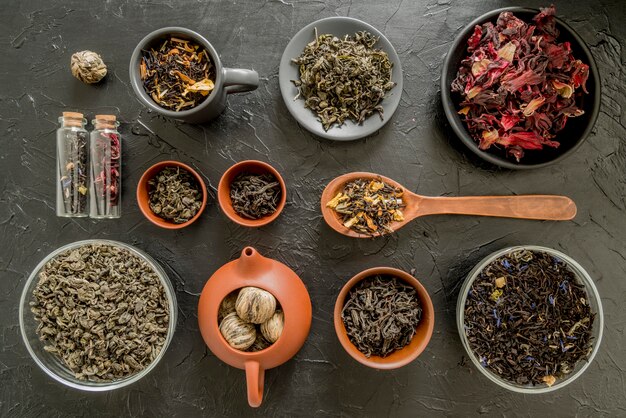Ask Ayurvedic doctor a question and get a consultation online on the problem of your concern in a free or paid mode. More than 2,000 experienced doctors work and wait for your questions on our site and help users to solve their health problems every day.
Galaganda in Ayurveda – Causes, Symptoms, and Ayurvedic Treatments

Introduction to Galaganda in Ayurveda
Galaganda, often referred to as goiter in conventional medicine, is a condition characterized by the enlargement of the thyroid gland. In Ayurveda, it is considered a disorder primarily caused by an imbalance in the Kapha dosha, leading to the accumulation of excess fluids and toxins in the thyroid area. The condition can manifest as a visible swelling in the neck, which may cause discomfort, difficulty swallowing, and even affect the normal functioning of the thyroid gland. Ayurveda views Galaganda as a metabolic imbalance that requires a holistic approach to restore health. Ayurvedic treatments for Galaganda focus on detoxifying the body, balancing the doshas, and promoting the proper functioning of the thyroid gland.
Don't wait or self medicate. Start chat with Doctor NOW
Historical Roots & Ayurvedic Significance
In Ayurvedic medicine, Galaganda has been recognized for centuries as a condition related to the imbalance in the body's vital energies, particularly Vata, Pitta, and Kapha doshas. The thyroid gland is responsible for regulating the body’s metabolism, and when there is a disruption in the metabolic processes, it can lead to the enlargement of the gland. Ayurvedic texts describe a variety of natural remedies that help reduce swelling, improve digestion, and restore balance to the thyroid, supporting overall endocrine health.
Causes and Symptoms of Galaganda in Ayurveda
1. Causes of Galaganda
In Ayurveda, the causes of Galaganda can be attributed to several factors, often related to an imbalance in the doshas:
- Kapha Imbalance: An excess of Kapha dosha leads to fluid retention and the formation of lumps or swellings in various parts of the body, including the thyroid gland. This fluid accumulation causes the thyroid to enlarge.
- Poor Digestion (Ama): When digestion is weak, it leads to the production of Ama (toxins), which accumulate in the body and disrupt normal metabolic functions, including those of the thyroid.
- Nutrient Deficiency: Lack of iodine, an essential nutrient for thyroid function, can lead to the enlargement of the thyroid gland.
- Vata and Pitta Imbalance: Although Kapha is the primary dosha responsible for Galaganda, imbalances in Vataand Pitta can also contribute by disrupting metabolism and increasing inflammation in the thyroid area.
- Genetic Predisposition: Family history and genetics may also play a role in the development of goiter.
2. Symptoms of Galaganda
The common symptoms of Galaganda, or thyroid enlargement, include:
- Swelling in the Neck: A visible swelling or lump at the front of the neck, which can vary in size.
- Difficulty Swallowing: As the goiter enlarges, it may press against the esophagus, making it difficult to swallow food or drink.
- Difficulty Breathing: In severe cases, the goiter may compress the trachea, leading to difficulty in breathing.
- Fatigue and Weakness: Due to metabolic disturbances, individuals may experience unexplained fatigue, weakness, or lethargy.
- Weight Fluctuations: There may be unexplained weight gain or loss depending on the type of thyroid imbalance.
- Dry Skin and Hair: The imbalance in thyroid hormones can lead to dry skin and brittle hair.
- Mood Swings: Individuals with Galaganda may experience mood swings, irritability, and anxiety due to thyroid dysfunction.
Ayurvedic Treatments for Galaganda
1. Herbal Remedies
Ayurveda uses a range of herbs known for their ability to balance the doshas, detoxify the body, and improve thyroid function:
- Kanchanar (Kanchanara): Kanchanar is one of the most renowned herbs in Ayurveda for treating goiter and thyroid problems. It helps in reducing swelling, detoxifying the thyroid, and supporting healthy thyroid function. Kanchanar is often used in powder or tablet form.
- Guggulu (Commiphora wightii): Guggulu has anti-inflammatory properties and is commonly used to treat swelling and enlargement of glands, including the thyroid. It helps reduce the buildup of toxins (Ama) and promotes the overall health of the thyroid.
- Ashwagandha (Withania somnifera): Ashwagandha is an adaptogen that helps in balancing thyroid function, especially in cases of hypothyroidism. It improves metabolism, reduces stress, and enhances overall vitality.
- Triphala: Triphala, a combination of three fruits (Amla, Haritaki, and Bibhitaki), is a powerful detoxifying agent. It helps in cleansing the body, improving digestion, and reducing toxins that may contribute to Galaganda.
- Shatavari (Asparagus racemosus): Shatavari is used to support the overall health of the reproductive system and can help balance hormones, including thyroid hormones.
2. Detoxification and Panchakarma
Panchakarma, a traditional Ayurvedic detoxification therapy, is an important treatment option for managing Galaganda. The process includes various methods like Virechana (purgation), Vamana (emesis therapy), and Nasya (nasal administration of medicated oils). These therapies help detoxify the body, remove Ama, and balance the doshas, promoting the normal functioning of the thyroid gland.
3. Diet and Lifestyle Recommendations
- Iodine-Rich Foods: Including iodine-rich foods in your diet, such as seaweed, fish, and iodized salt, can help support thyroid health.
- Avoid Excessive Salt Intake: Too much salt can worsen the condition, especially in cases of Kapha imbalance. Opt for a balanced and nutritious diet that promotes overall well-being.
- Warm Foods and Drinks: Avoid cold, heavy foods and opt for warm, easily digestible meals to improve digestion and reduce the production of Ama.
- Exercise: Regular physical activity helps maintain healthy metabolism and supports the functioning of the thyroid.
- Stress Management: Since stress can exacerbate thyroid issues, it is essential to practice stress-reducing techniques like yoga, meditation, or pranayama.
4. Ayurvedic Oil Application
Massage with specific Ayurvedic oils can help improve blood circulation to the thyroid area and reduce swelling. Oils like Mahanarayan oil or Kanchanar Guggulu oil can be massaged gently over the neck area to support healing.
How Ayurvedic Remedies for Galaganda Work
Ayurvedic remedies for Galaganda work by addressing the root causes of the condition—imbalance in the doshas, poor digestion, and toxin buildup. The herbs used in Ayurvedic formulations detoxify the body, balance thyroid function, and reduce the inflammation and swelling of the thyroid gland. By improving digestion and eliminating Ama, Ayurveda helps restore balance to the thyroid, thereby reducing the size of the goiter and preventing its recurrence.
Recommended Dosage & How to Use Ayurvedic Remedies for Galaganda
The dosage of Ayurvedic remedies for Galaganda varies based on individual health needs. It is important to consult an Ayurvedic practitioner for proper guidance. However, general recommendations include:
- Kanchanar Guggulu: 1-2 tablets, taken twice daily with warm water, after meals.
- Ashwagandha Powder: 1 teaspoon, taken once or twice daily with warm milk or water.
- Triphala: 1 teaspoon, taken before bed with warm water to promote detoxification.
- Guggulu: 1-2 tablets, taken twice a day as advised by your practitioner.
Potential Side Effects & Precautions
- Allergic Reactions: Some individuals may be allergic to specific herbs used in the treatment. Always consult an Ayurvedic practitioner and perform a patch test before using topical oils.
- Pregnancy and Nursing: Pregnant or breastfeeding women should consult a qualified Ayurvedic practitioner before using any herbal treatment.
- Overuse: Excessive consumption of herbal remedies can lead to digestive discomfort or other side effects. Always follow the recommended dosage.
Frequently Asked Questions For Galaganda in Ayurveda
What is Galaganda in Ayurveda?
Galaganda in Ayurveda refers to the enlargement of the thyroid gland, commonly known as goiter. It is caused by an imbalance in the doshas, particularly Kapha, and results in the formation of a swelling in the neck area.
What are the causes of Galaganda?
The causes of Galaganda include Kapha imbalance, poor digestion (Ama), nutrient deficiency (especially iodine), genetic predisposition, and other factors that disrupt thyroid function.
How can Ayurveda treat Galaganda?
Ayurvedic treatments for Galaganda focus on balancing the doshas, improving digestion, detoxifying the body, and using herbs like Kanchanar, Guggulu, and Ashwagandha to support thyroid health and reduce swelling.
Can Galaganda be completely cured in Ayurveda?
While Ayurveda offers effective remedies to reduce the size of the goiter and restore thyroid function, complete recovery depends on the severity of the condition. Consistent use of Ayurvedic treatments and lifestyle modifications can provide significant relief.
How long does it take to see results from Ayurvedic treatments for Galaganda?
The time to see results may vary depending on the severity of the condition, but many individuals notice improvements in 1-2 months of consistent treatment.
Are there any side effects of Ayurvedic treatments for Galaganda?
Ayurvedic treatments are generally safe when used as directed. However, overuse or misuse of certain herbs may cause mild digestive upset or allergic reactions. Always consult a practitioner before starting treatment.
Can I use Ayurvedic remedies along with conventional treatments for Galaganda?
Yes, Ayurvedic remedies can complement conventional treatments, but it is essential to consult with both your Ayurvedic practitioner and healthcare provider for personalized guidance.
Conclusion & Expert Insights
Galaganda, or goiter, is a condition that can be effectively managed with Ayurvedic treatments. By addressing the root causes, such as doshic imbalances and digestive issues, Ayurveda offers a holistic approach to promoting thyroid health. Through the use of herbs like Kanchanar and Ashwagandha, along with detoxification and lifestyle changes, Galaganda can be reduced, and thyroid function can be restored. Always seek the guidance of an Ayurvedic practitioner for personalized treatment and proper care.
References & Further Reading
- Sharma, P.V. (1995). Ayurvedic Healing: A Comprehensive Guide.
- Lad, V. (2002). Ayurveda: The Science of Self-Healing.
- National Institute of Ayurveda:
4o mini



